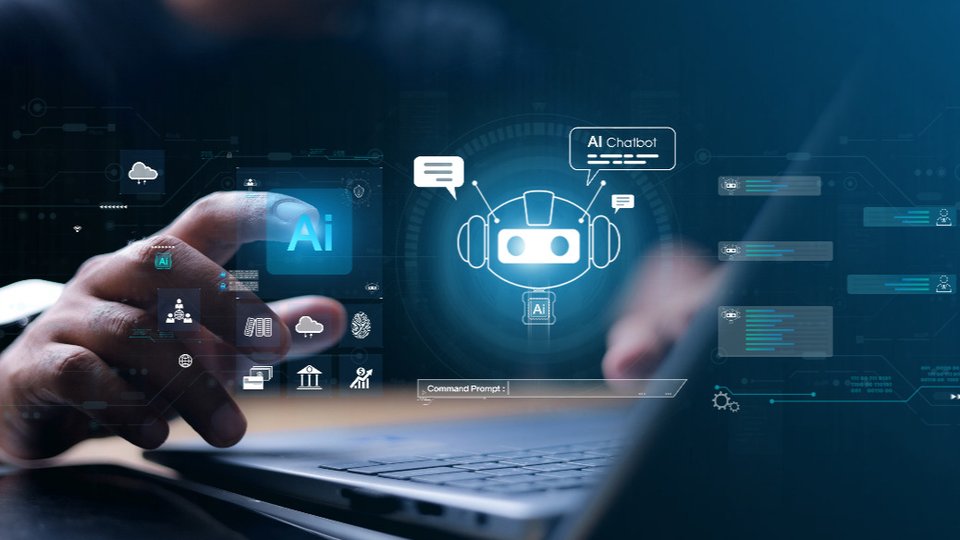AI
Personalization and testing in the age of AI: A roadmap for retail leaders
AI is here, and its influence on retail will only deepen. The question for leaders is no longer “if” or “when” but “how.”

November 13, 2025 by Steve Maher — CEO, Monetate
Imagine a loyal customer abandoning their cart because your site served up irrelevant recommendations, again. Or worse, switching to a competitor whose AI anticipates their needs with eerie precision. These aren't hypotheticals; they're daily realities costing brands revenue.
Retail is transforming at breakneck speed, fueled by AI that's no longer a buzzword but a must-have. Consumers demand intelligent, seamless experiences across every touchpoint, including mobile apps, websites, and in-store kiosks. If you're still treating AI as an optional experiment, you're risking obsolescence. The good news? AI isn't just the threat; it's your secret weapon. Forward-thinking leaders are already turbocharging e-commerce with it, and you can too.
The AI trends reshaping retail
AI is accelerating how customers discover, engage, and buy, pushing trends from niche experiments to industry standards. These trends are quickly moving from the margins to the mainstream and will define what "good" looks like in the modern retail landscape.
- Hyper-personalization at scale. Customers want interactions that feel as if they were designed for them personally, not just for "people like them." AI makes it possible to deliver these experiences simultaneously across web, mobile, and in-store environments.
- Conversational AI. Virtual assistants and chatbots are evolving to handle nuanced queries, offer recommendations, and deliver real-time support, all in natural, human-like dialogue.
- Multimodal Discovery. Shoppers increasingly use voice, text, and images to search for products. AI systems that can interpret and connect these inputs are making discovery faster and more intuitive.
- Predictive Insights. Instead of simply reacting to customer behavior, AI can anticipate needs, offering the right product or promotion at exactly the right moment.
Together, these trends are redefining brand-customer connections. Yet they all rely on one critical foundation: personalization.
Why personalization Is the catalyst
Without personalization, AI is just another tool in your stack. Leading retailers excel by turning AI into one-to-one magic that boosts engagement and loyalty. Picture a shopper on your apparel site: AI recommends styles based on their history, a chatbot suggests accessories, multimodal search matches an uploaded inspo photo, and predictive tech offers a flash deal on their favorites. The result? A fluid journey that delights.
The numbers back it up: 71% of consumers expect personalized interactions, and 76% get frustrated without them, according to McKinsey. AI-driven personalization can lift conversion rates, engagement in product discovery, and slash bounce rates. It's forging trust, driving more revenue growth and better retention. Take a leading beauty retailer, they use AI to personalize store assortments and marketing, boosting loyalty scores. Another's AI-powered Virtual Artist analyzes selfies for tailored beauty recs, spiking conversions. A sportswear app personalizes training plans and gear, significantly lifting retention. These wins prove that personalization isn't a nice-to-have; it's your loyalty multiplier.
Your AI personalization roadmap
To fully realize AI's potential, retail leaders must move beyond pilot projects and embrace a structured approach. The following are best practices laid out in an actionable, phased blueprint designed to help organizations prepare infrastructure, data, and teams for successful AI deployments:
Phase 1: Assess (1-2 months)
- Audit data quality: Start with accurate, complete, and diverse datasets. Audit for biases that could erode customer trust. AI and personalization thrive on quality input.
- Benchmark gaps: Analyze personalization gaps against competitors. Are your recs generic? Is your site slow to adapt?
Phase 2: Build (2-4 months)
- Integrate AI into existing workflows: Tools should complement ecommerce platforms, marketing systems, and customer service processes. They should not operate in silos. Integration ensures both scalability and efficiency.
- Align teams: Personalization spans IT, marketing, merchandising, and customer service. Break down silos so that AI initiatives reflect shared goals and deliver cohesive experiences. Align IT, marketing, and service on shared AI goals.
Phase 3: Scale and Optimize (ongoing)
- Redesign testing frameworks: Traditional A/B testing is too slow for today's pace of change. AI-driven experimentation can generate variations automatically, identify likely winners, and tailor results to different customer segments.
- Prioritize ethical relevance: Personalize helpfully, not creepily. Customers appreciate personalization when it feels useful, but resent it when it feels invasive. Be transparent, respect opt-outs, and let users control data.
- Monitor for fairness and bias: Algorithms can unintentionally replicate inequities. Build checks into your processes to identify and correct biased outcomes before they affect customers.
- Fortify security: As data use expands, so does scrutiny. Regulations are tightening, and consumers are more protective of their personal information. Ensuring strong governance is non-negotiable.
- Track KPIs: Monitor conversion lifts, Net Promoter Score, and engagement to ensure AI-powered personalization efforts are landing with customers. Iterate with ethical checks.
Avoiding Common Pitfalls
Just as important as best practices are the pitfalls to avoid. Many companies rush to implement AI tools without addressing the foundational work of data preparation. Don't rush in blind. Many falter by skimping on data prep, leading to flawed outputs. Others prioritize speed over ethics, sparking privacy backlash. Recent research from Monetate found 53% of holiday shoppers expressed some reservations about using AI, with almost one-third citing privacy concerns.
Another misstep is treating personalization solely as a technology challenge. Treating AI as purely tech fails without organizational buy-in. Address "no budget" objections with free trials or quick ROI wins, like a 10% conversion bump from a single-channel pilot. AI demands cultural shifts, not just software.
The road ahead
Nearly 8 in 10 consumers prefer brands that offer personalized experiences, and these consumers will spend 50% more with such brands. The future belongs to retailers who master AI for authentic, trustworthy personalization. Retailers who do this will not only convert more but earn lifelong loyalty.
The opportunity is enormous, but so is the responsibility. In the rush to innovate, retailers must remember that every interaction carries weight. When personalization respects privacy, when testing is done ethically, and when AI enhances rather than replaces human connection, the results speak for themselves.
AI is here, and its influence on retail will only deepen. The question for leaders is no longer "if" or "when" but "how." By embracing personalization and experimentation today, retailers can ensure they are not just keeping pace with change, but setting the standard for what comes next.
About Steve Maher
Steve Maher is the CEO of Monetate, where he leads the company’s mission to help the world’s most innovative brands deliver exceptional digital experiences. With over 25 years in SaaS, AI, cybersecurity, and customer experience, Steve has a track record of transforming growth-stage companies into industry leaders—scaling global teams, driving innovation, and creating meaningful enterprise value. Beyond business, Steve is deeply committed to philanthropy through The Maher Foundation, which he co-founded with his wife to support neurodiversity and other mission-driven causes.
 ChatGPT
ChatGPT Grok
Grok Perplexity
Perplexity Claude
Claude




